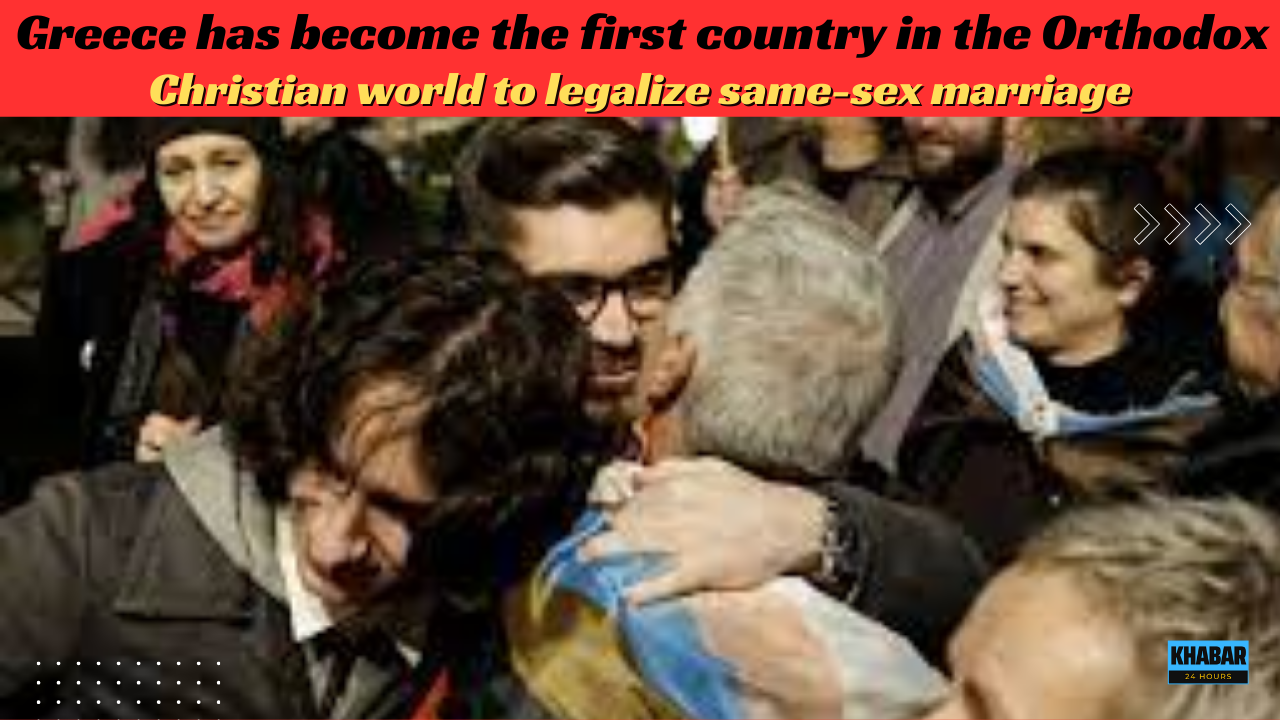Despite objections from church officials, lawmakers in the 300-seat parliament voted in favor of the bill proposed by the center-right government.
Greece has made history as the world’s first Christian Orthodox nation to legalize same-sex marriage, following the passage of the groundbreaking reform by the Athens parliament. The decision, which witnessed both celebrations and opposition, saw 176 MPs from various political backgrounds supporting the bill, while 76 voted against it. Members of the LGBTQ+ community, visibly moved by the momentous occasion, observed from the galleries. Prominent gay activist Stella Belia expressed, “We have waited years for this,” emphasizing the significance of the legislation, which not only permits civil ceremonies for same-sex couples but also enables them to adopt children.
“It’s a momentous occasion. Many of us doubted it would ever happen,” she remarked.
The vote came after two days of intense debate and weeks of public controversy. Supporters hailed the reform as “bold” and “long overdue,” while opponents, including the influential Orthodox Church, condemned it as “antisocial” and “unchristian.”
Prime Minister Kyriakos Mitsotakis, despite facing strong opposition within his own center-right New Democracy party, championed the bill. He argued that it would address a significant inequality in Greek democracy. Mitsotakis, a member of the liberal faction of his party, emphasized that the measure would align Greece with the 36 countries worldwide that had already legalized same-sex marriage. He rejected the notion that conservatism should equate to outdated views out of touch with modern society.
“The reform we are enacting today… will improve the lives of some of our fellow citizens without taking away anything from the lives of others,” Mitsotakis declared passionately before the vote. He assured that the law would grant full parental rights to same-sex couples.
Resistance within New Democracy was notable, with MPs mindful of their socially conservative constituents. Former Prime Minister Antonis Samaras argued earlier in the day that same-sex marriage was not a human right and criticized the “dangerous” law.
The reform would not have passed without the support of Syriza, the main opposition leftist party led by Stefanos Kasselakis, Greece’s first gay political leader, and other smaller groups.

LGBTQ+ advocacy groups had also criticised the bill saying far from ending discrimination, the law’s limitations – allowing only single women and straight couples to have access to assisted reproduction – as well as “the hate speech” that had engulfed so much of the debate had left many in the community feeling traumatised.
“The legislation itself is so problematic and the language that we have heard so offensive that rather than wanting to celebrate, a lot of people feel quite numb,” said Elena Christidi, a psychologist and co-founder of the Orlando group which advocates for LGBTQI mental health services. “It’s been devastating for gay men and trans people who want to have children … once again they’ve been left with the feeling that the state has judged them not to be good enough to have the same rights as others.”
Orthodox bishops had threatened to excommunicate lawmakers who voted for the measure while the leader of the far-right Spartans party had said the law would “open the gates to hell and perversion”.
The group was one of four parties – also including the communist KKE party – that overwhelmingly rejected the bill. All four insisted that if they had their way, the “monstrous” legislation would be nullified.
But Mitsotakis insisted that as of Friday barriers would be removed.
For far too long, he said, gay people had remained “invisible,” oppressed by their families and social environment in villages and towns. “They were, let’s not kid ourselves, the children of a lesser god,” he told MPs, visibly moved.
Within minutes of the vote’s passage on Thursday night, the Greek leader posted on X: “The vote has passed: as of tonight Greece is proud to become the 16th EU country to legislate marriage equality.
“This is a milestone for human rights, reflecting today’s Greece – a progressive and democratic country, passionately committed to European values

